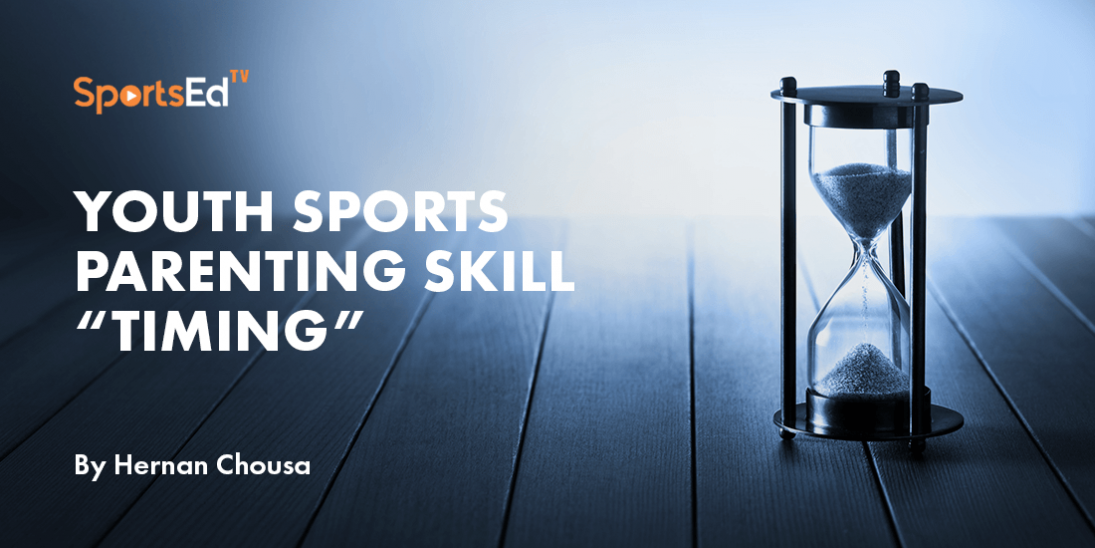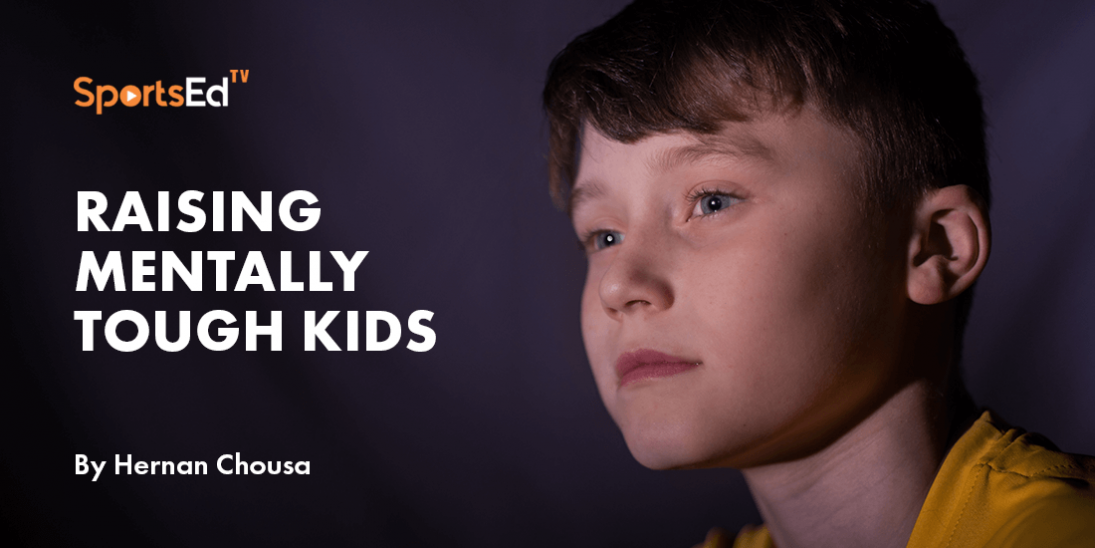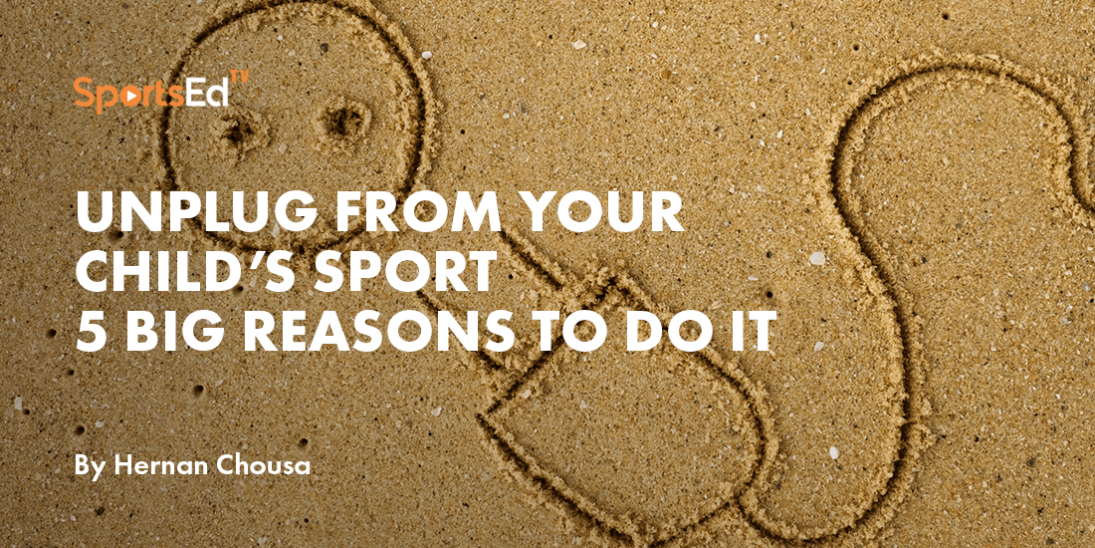Baseball, Basketball, Boxing, Football - American, Gymnastics, Physical Education, Soccer, Sports Parenting, Tennis, Volleyball
Welcome and thanks for visiting...

Youth Sports Parenting Skill - Timing

This article is the first one of a series where we will be distilling each sports parenting skill, one by one. After a whole Sunday afternoon recalling my parenthood life and thinking about what can be best for your kids, I came up with the Timing. According to the Oxford Languages definition, Timing is the choice, judgment, or control of when something should be done.
Have you watched the pros of any sport when they are in the flow? Michael Jordan or Roger Federer has time. They have that extra second that separates them from the rest.
How do pros master their craft?
Repetition, repetition. The answer is repetition.
Once, Pete Sampras, during an interview, was asked about how his serve looked so smooth and easy. After smiling, Pete answered, you have no idea how much I practiced looking it that way. He used to practice serving on weekends. His targets were quarters coins located in the corners of the serve field. He didn't put cones; he rehearses with coins and is known as one of the biggest serves in tennis history.
You may be asking how this can relate to your parenting performance—an excellent question, by the way. Every activity starts with poor results. Yes, we deliver crap at the very beginning. If we can handle the burning desire to quit and stay on the court, crap shifts to something good, later to very good, and hopefully mastery.
How do we behave with our own children?
We try to avoid our kids' mistakes, protecting them from the unknown, anticipating problems, and not letting them experience life. I have a weird statement here to make: Mistakes are healthy. Yes, you read well. Mistakes are healthy. They let them grow and find ways to improve. They make our kids think about ways to improve and how to tackle things. The person who makes an error is the one who tried, no matter what to become better, to achieve something, stepping out of their comfort zone. We experience failure when we quit. Michael Jordan says that you get used to it when you quit once. Winners never quit; winners always try.

So, we must create spaces and conditions for our kids to make decisions outside the court. How will they perform in a sport if they aren't familiar with decision-making? Sports are about fast choices, plenty of them, and the results are on time. Remember, adversity is the best teacher.
We are set in our Timing with many years on our shoulders, loading all our knowledge on them. The problem is that what is right for us isn't the best option for them, so the discovery process is priceless. Kids have their Timing, and it works like a cork. You can put it below water for a while, but it will come to the surface sooner or later. It's useless to hesitate when our kid is underperforming according to our standards.
Let's practice the following exercise. Let's suppose you are with your kid, and he is delaying about something; resist the temptation to act and let things go as if you weren't there. He will find a way without your help, and if he doesn't, he will seek your advice. Let's say it in another way. Stop micromanaging your kid. I am guilty about that one, too, and it is a harmful one because nobody grows in their parents' shadow.
How do we get the right Timing with kids?
In conversations with our kids, the drive to give instructions has to be handled as an addiction. It happened to me that I knew it wasn't the right moment to deliver the message to my kids, but I needed to take that garbage out of my mind and deposit it into theirs. It always happens, and we must build muscle to resist temptation. A new addiction is our phones. How many of us are run by them? As soon as it rings for a call or message, we interrupt our productive work no matter what important task we are performing. We also spend plenty of time on social media or WhatsApp groups.
Here is a helpful tip to adjust the Timing; it works with the phone and can work with your kids. Every time you feel the urge to say something, wait ten minutes; if you still need to talk after that period, go ahead. This way, you will filter your interactions and improve their quality. Remember something. In communication with kids, less is more. This tip also applies to your significant other. How many times a phrase at the wrong moment ruins a whole weekend? We regret most of the things we talk about more than the words we don't say.
Another good practice that requires tons of training is the one Nelson Mandela applies. Mandela was one of the most influential leaders, and the technique he learned from his father was, being the last to speak. To arrive at that situation, you have to listen to all the other members of the conversation previously. By doing it, you provide the speaker with confirmation that you listened, understood their point, and let them express themselves fully. It's tough. I know it is tough, but it is good practice.
Nowadays, information travels in a second. Every news or little thing is online right on time. There is a dark side to it; we can track our son's life minute by minute. I know times are tough, there are insecurity concerns, and we need to be sure they are healthy and safe; however, finding balance is challenging. Sometimes, we can't travel to our kid's tournaments. Still, we are linked to someone watching the match and delivering data continually. When I played thirty years ago, there was no information, internet, Wi-Fi, or anything else. One call every two weeks was a luxury in those days; we felt far away from home. The good thing was my parents didn't know how I was doing, and I had no complaints, no regrets, and no punishments. There was a friend of mine who went a step further. Instead of communicating a loss, he argued the tournament got canceled. It wasn't a lie and a creative way to decorate the competition.
We always want to be informed about our kid's actions and results. Imagine for a second if your boss requires the same of you. What an unhealthy relationship. Can you be productive? Can you be creative and give your best? I doubt it. We are all dealing on the surface. Once in a while, it is healthy to step into the balcony for a better perspective. Back to communications, we tend to over-ask our kids about their sports:

- How did he feel in practice?
- Who did he play?
-How was the coach's attitude towards him?
And many, many other things.
It reminds me of my business trip to Japan; we were pursuing an agreement with a local company, and they wanted to know us. Eastern culture is far different from ours, and they are used to asking many questions. Only one Japanese spoke English, and I had to canalize his company member's questions. I had never answered so many in my whole life. The funny thing is that the guy started every phrase with 'More Questions.' As questions went by, my patience levels were close to zero. Whether the request was essential or not, my answers started losing quality, so please give your kid a break.
There are Majors and minors in life, and learning how to handle them is an art. Many people need to do better simply because they major in minor things; we could spend one hour with a call that can take five minutes. On the other hand, if we minor in important things, for example, needing to prepare when opportunity knocks on our door, we will lose great moments that can improve our lives.
Back to our kids, who are majors, how can we get the information without torturing them? There is homework to do here, standing in their shoes and experiencing how it feels to be attacked with questions. If we can understand the other side's perspective, we have half of the match already won.
Finally, our kid is the best performer of his passion, and second, discovering it is his own business. We can find parents in their thirties or forties who don't know what to do with their lives but are sure what their kid has to do. I have a personal story to share about this. Sebastian, my younger son, finished high school; as parents, we do not doubt that after high school comes college. Sebastian started in business administration after taking a vocational test. Unfortunately, he failed 80% of the exams at the end of the first semester. It was an excellent argument to ask for a refund. After a conversation, I suggested graphic design because Sebastian has artistic skills, and he started when he discovered the guitar. Something weird happened; with no guitar lessons and no instructions, his skills were improving, and after a year in his new career, he quit college again. My spouse is a lawyer; her brothers are lawyers; her father is a lawyer, and her grandparents. You can imagine we had a tough time while Sebastian was polishing his guitar skills.
I lost authority and had to rely on a professional. We went to a prestigious psychologist for a qualified opinion, and he said two things. The first was, 'Give him time; he will find the way.' I was in line with that view and happy to get an endorsement. 'Don't push him with the music,' was the second. That one was right to my heart because unconsciously, I was doing it by asking him what he was listening to or about the new lick he was rehearsing. After one year, he found his career: music production for movies, and he succeeded in making a long story short.
Something interesting came up with the story. We have to search for advice when we are stuck. I don't mean to ask anyone; we need professional help. Our neighbor or a relative isn't the best choice when requiring a financial tip. Searching for pros and paying the price will free your mind of fears and annoying self-talking. A third party can listen, process the information, and give us good feedback—an opinion about our behavior and how to harmonize our kid's journey.
Talking about music, you want to play in scale. The other musicians will notice right away and will let you know. Your kid knows when you are off track, but he doesn't express it, maybe because he is afraid or doesn't want to upset you. Life is as clear as music; the problem is we love to dig deeper, thinking we have to fix others. We need to fix nobody. We have to change, and when we change, everything changes.








